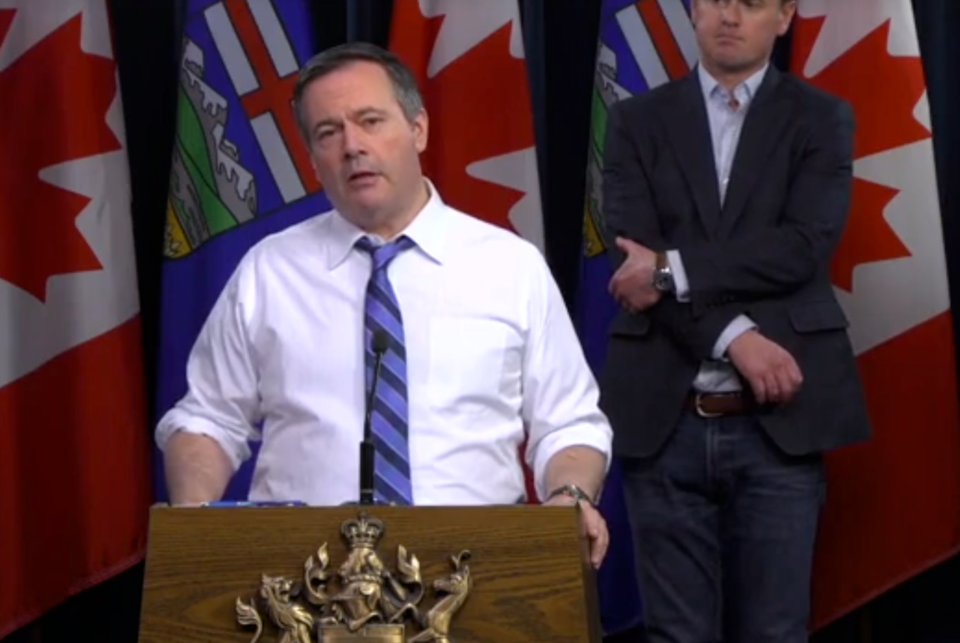Premier Jason Kenney said Wednesday the province is finalizing a list of essential services in the event of a shutdown.
Other provinces, including Ontario and Quebec, have ordered the closure of all non-essential workplaces amid the COVID-19 pandemic.
"We have been working diligently on developing a list on what constitutes critical infrastructure and essential services," Kenney said during the COVID-19 update on March 25.
"We were briefed on an initial proposal by the Alberta Emergency Management Agency this morning, and they're going to do further work. I anticipate by early next week we would have settled on criteria and a list of essential services."
COVID-19 UPDATE: Follow our COVID-19 special section for the latest news on the coronavirus pandemic, as well as resources, FAQs and more.
Kenney said the province has been looking closely as to what other jurisdictions are doing as a template, including Ontario, Saskatchewan and some U.S. states such as Massachusetts.
Alberta's economy does have "unique characteristics, one of which is our large energy sector," he said, calling the continued operation of certain oilsands infrastructure "essential." Kenney said he raised these points to Prime Minister Justin Trudeau two weeks ago.
"If some of those (steam-assisted gravity drainage) SAGD projects shut down, that permanently risks their reservoirs and billions of dollars of investment, and a critical part of the Canadian economy," he said. Steam-assisted gravity drainage is an enhanced oil recovery technology for producing heavy crude oil and bitumen.
Therefore, Kenney said Alberta's list of essential services will "be more expansive than others in energy production," but similar to lists in Ontario and Massachusetts.
He did not say whether this list would mean other services deemed non-essential would have to close.
Nineteen sectors were identified as essential in Ontario's list, including supply chains, retail and wholesaling businesses such as grocery stores and liquor stores, restaurants and food facilities prepping food for delivery, telecommunications, transportation and agriculture.
Closures in that province went into effect on March 24 and are expected to last at least two weeks.
RELATED: How to support local business in a time of social distancing




